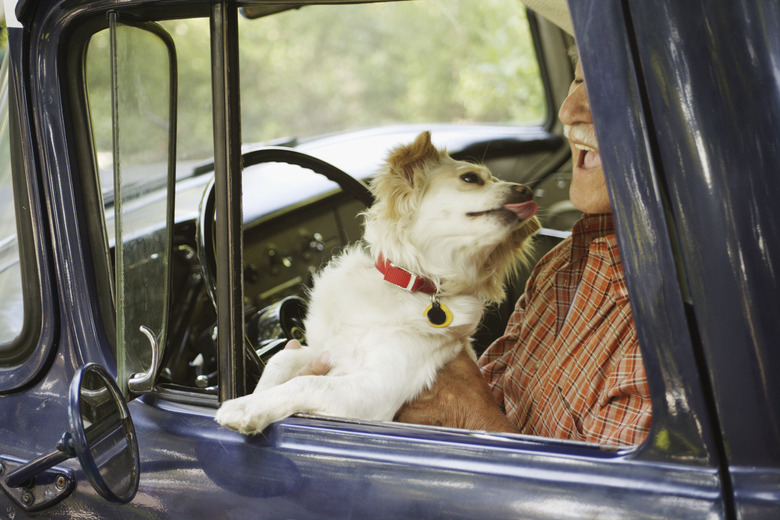Home Remedy For Treatment Of A Cyst On A Dog's Back
When you notice a lump or bump on your dog, monitor it — but do not try to remove it or break it open. Most canine cysts are benign, or not harmful. But if changes occur in its shape or if it grows quickly, a trip to your veterinarian for diagnosis and treatment is necessary.
Cyst Types
Cyst Types
The most common canine cyst types are lipomas, papillomas and sebaceous cysts. A lipoma is a benign fatty tumor common in middle-age and overweight dogs when the immune system is less effective. Papillomas are wart growths that occur from a viral infection. Sebaceous cysts occur when the glands are plugged and do not drain as usual to provide your pet with a fatty layer under his skin.
Cyst Examination
Cyst Examination
A cyst that is regularly shaped — that is circular or oval — is more likely to be benign and not harmful to your dog. If the cyst moves easily under your dog's skin, it is likely a lipoma. Slow-growing cysts are usually not harmful; cysts that discharge a cheesy substance are generally sebaceous and are not risk factors for your dog.
Monitoring Cysts
Monitoring Cysts
Look closely at the cyst each day to determine if it is changing in shape or size, or becomes hard and immoveable. These signify that a cyst is becoming dangerous and cancerous. Take care in daily petting, grooming and bathing not to break the cyst open.
Ruptured Cysts
Ruptured Cysts
If your dog's cyst ruptures, it can cause secondary infections, become inflamed and red, and ooze greasy or cheesy matter. Call your veterinarian for an appointment if a cyst ruptures; keep it clean with an antiseptic solution twice a day to prevent infection. Do not press on it or cause extra drainage of the cyst.
Veterinarian Visit
Veterinarian Visit
Your veterinarian will do a needle aspiration of the cyst to determine what type it is and what treatment is needed. The needle draws a small amount of the inside of the cyst, which is placed on a slide and examined under a microscope. Your veterinarian may also do a skin scraping on the exterior of the cyst. A cyst can turn cancerous in the advanced stages, so it requires immediate attention.
Always check with your veterinarian before changing your pet's diet, medication, or physical activity routines. This information is not a substitute for a vet's opinion.
